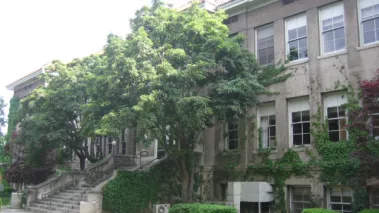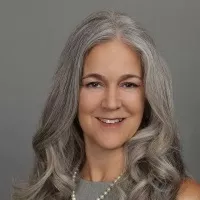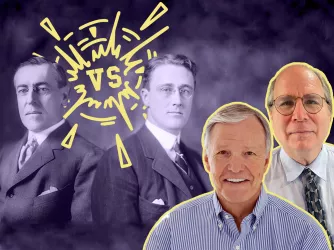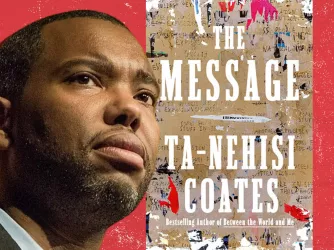Table of Contents
Diane Klein sentenced to ‘academic death penalty’ at University of La Verne despite unanimous faculty recommendation to reinstate her. Klein vows lawsuit.

Founders Hall at University of La Verne in Southern California. (Phu Nguyen/Wikicommons)
The Board of Trustees at University of La Verne told law professor Diane Klein this week that its decision to strip her of tenure is final. In doing so, ULV ignores both the unanimous vote of the university’s Promotion and Tenure Committee to reinstate her and the school’s own policies, which guarantee Klein a meaningful appeal.

“All the substantive matters being alleged against me are flimsy and pretextual,” Klein tells FIRE. “At worst, minor infractions of a sort committed routinely throughout the university without significant consequences.”
“The real reason for all of this is my involvement in faculty governance and, ironically, the protection of tenure, especially at the College of Law.”
Now, Klein says, she will sue to protect her rights.
Klein’s use of ‘assassinate’ a pretext for her ouster
Klein has long maintained that her dismissal by ULV’s provost late last year — over a baseless allegation that she threatened a colleague — was a pretextual attempt to remove her for her outspoken work to improve the law school’s faculty governance and her support for tenure protections.
FIRE shares many of Klein’s concerns. We wrote to ULV earlier this year, explaining that, in context, it was clear Klein’s speech was not a “true threat.”
As part of ongoing discussions about the potential closure of the College of Law, there were concerns about the school’s Center for Academic and Bar Readiness program and the professor who runs it, Jendayi Saada. (ULV’s 2018 California bar exam passage rate was a scant 32.08% — far lower than the 2018 statewide average of 64%.) After the issue was discussed at a November 2019 Faculty Senate meeting, someone overheard and reported a comment they said Klein made to a fellow professor:
“We have to decide whether we are willing to assassinate Jendayi—and I, for one, am willing to do it.”
As FIRE’s letter explained to ULV:
Klein’s comment was not a serious expression of an intent to commit unlawful violence. It was intended, and was understood to be, a metaphorical and hyperbolic expression concerning Saada’s leadership and the efficacy of her program in the context of broader criticism of the ULV College of Law, its bar passage rates, and current position of financial exigency. As noted in well-settled cases spanning decades, the First Amendment and any reasonable understanding of freedom of speech plainly protects such expression, even when it obliquely, hyperbolically, rhetorically, or sarcastically implies physical harm to another. Such speech, like Klein’s comment, remains protected expression and cannot reasonably be considered a true threat to physically harm another.
The ‘academic death penalty’
In addition to concerns about free expression, FIRE has repeatedly faulted ULV for failure to adhere to its own due process policies as outlined in its faculty handbook.
In violation of the promises it makes to faculty, the university failed at nearly every stage to provide Klein with adequate due process, including proper notice of the charges against her and the opportunity to present a meaningful defense.
On July 30, Klein was permitted to speak to the Board of Trustees about her case before they deliberated.
In addition to concerns about free expression, FIRE has repeatedly faulted ULV for failure to adhere to its own due process policies as outlined in its faculty handbook.
“The administration is asking you to sentence me to the ‘academic death penalty,’” Klein said she told the board. “If you do that, you will be ending my career, here or anywhere, forever. A career dedicated to antidiscrimination law and to educating lawyers of color. You will also be overruling the unanimous vote of the University Promotion and Tenure Committee.”
The following day, the board decided to uphold the provost’s determination to fire her. But, as faculty are guaranteed the right to appeal a decision of the board of trustees, Klein subsequently filed a notice of appeal.
In yet another (and quite bewildering) due process failure, ULV notified Klein that her July 30 presentation had constituted both her hearing — and her appeal.
(A general note to the scholars over at ULV: One cannot appeal a decision that has not yet been made.)
‘A foregone conclusion’
Klein says she will take ULV to court — and will press her concerns with the National Labor Relations Board.
“Several things alleged against me did not happen at all, or have been taken out of context and misrepresented,” Klein said, adding that, had she been afforded the opportunity to present a meaningful defense, the facts might have come to light.
“Although our handbook gives me a full and fair opportunity to defend myself at every stage of the process,” Klein said, “nothing approaching that was accorded to me.”
“My overall feeling is that I participated, in good faith, over more than seven months, in a process whose outcome was a foregone conclusion.”
FIRE supports faculty who fight to protect their academic freedom and due process rights. If your rights have been threatened or violated, let FIRE know and submit a case.
Recent Articles
FIRE’s award-winning Newsdesk covers the free speech news you need to stay informed.

Wilson vs. FDR: Who was worse for free speech?
Podcast
Woodrow Wilson or Franklin D. Roosevelt: which president was worse for free speech? In August, FIRE posted a , arguing that Woodrow Wilson may be America's worst-ever president for free speech. Despite the growing recognition of Wilson's...

Right, left, and in-between: Can we bring our differences to the table?

How to survive Thanksgiving
